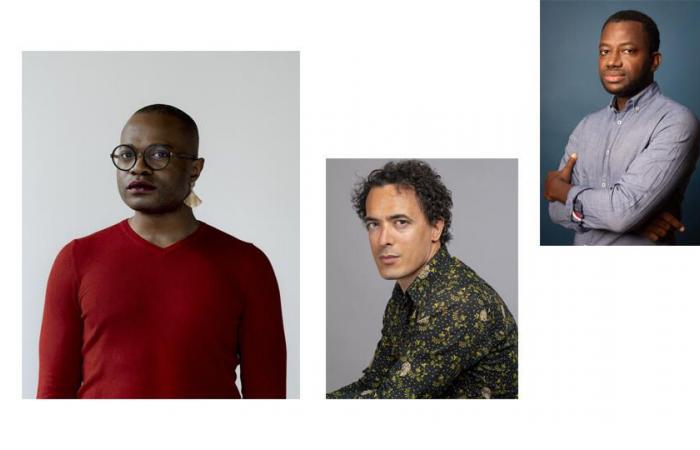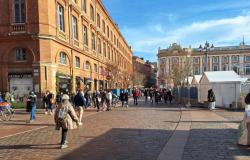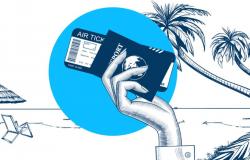The concomitant publication of three novels on immigration raises the question of these new and new damned of our land to whom we refuse the right to be simply regarded.
Diary of an exile d’Amadou Barry, Fathers dance of max lobe, Naturalization from Zied Bakir. Three novels that are not alike. However, in their limbo, we perceive the same refrain: to write the uprooting, the proscription, the non -antization of those who are called, generic and often to get rid of them, the immigrants. Three roommates of a dilapidated common house.
The way of Amadou Barry is a strong way from the first lines of Diary of an exile : “I decided that whatever happens, I won’t kill myself. I admit, it was difficult for me to make this decision given the color of the sky, you will agree if you continue reading. This morning, I also decided to speak. Me, the unknown from afar, uncultivated it, exile without diploma, the unwanted. Everyone talks about me, against me, sometimes for me, but never in my presence. ” This radicality is at the service of a sorrow: “My friend Fodié died alone at dawn, on a wet sidewalk, under your windows.”
Requiem in the form of Day The story will therefore be that of the Ivorian Fodié and the Guinean Dramén, his companion in misfortune, who, stranded in Paris, survive in a camp. Bottomless shallows where scammers are crossed, “False exiles, and also terrorists disguised as exiles”, Braves and morons. “When our day starts with ‘I am hungry’, ‘I did not pay my rent’, ‘I have nothing to pay for my transport ticket, my coffee …’, our brain gives up, it Lose control, one day we see that we have the head of an idiot, and that’s it. ”
The language of Amadou Barry spits the venom of vital hatred and his counter-poison: the taste of the human race whatever his bitterness. “Let’s hear, I’m spokesperson for anyone, I don’t like spokespersons and I don’t want to be. And then in the world of exiles, speech is mainly swallowed up, there are only heavy silences to carry everywhere. ” By the grace of Amadou Barry, silence becomes a beneficial din.
The ways of Max Lobe are more caressing, but in the end just as rough. Benjamin Müller, narrator of Fathers dance, is a classic dancer, born in Cameroon and resident in Geneva. He looks at his past: “I try to connect to the wifi of my memory which projects me away, when suddenly reach me the colors, the scents, the voices of my childhood, there in Beedi, especially that of my father, Kundè di gwet njé, the warrior lion. ”
By climbing in the tree of his genealogy, Benjamin is injured in a thorny branch: his childhood as a little boy disturbed by his friends “Like hip-hop in [s]on slip”. And then endure “Butterfly names” who are wasps. “A nine-movies-for-orrier” spits one, or less metaphorical: “You are faded, had ended up saying my uncle who, speaking to my aunt, had added: ‘I don’t want the devil at home.” “
-Denied by his beloved father, Benjamin would be worse than “The white thing”. “With these people, we can never hear ourselves. Do we make friends with someone who denies humanity in us? At this thought, I have the impression of being fragmented, fragmented, I feel incomplete, the strange feeling of having usurped an identity, a story, a name, an accent, a language. ”
A language, however, rumbled and saturated with humor according to an Anglo-Franco-Cameroonian Sabir. “Auntie Bwamè was a small savings and had quickly found the road to China. One, two and up to five times a year, she went there to buy bags of brands: Hermèz, Guacha and even Yves Xan l’Orient. ” At the end of his ban, Benjamin does not fall and deploys the wings of his peaceful singularity.
It is also in the land of exile that Zied Bakir travels with Naturalization. A volunteer exile for Elyas, a young Tunisian who, in the late 1990s, enrolled in college to obtain a diploma synonymous with visa for Paris. There follows a wander in the Dèche, nourished by funny meetings: an former scholarly legionnaire, a psychiatrist who believes to save him by marrying him.
These memories of in France are embroidered on childhood memories: a baker and alcoholic father, a grandfather former activist of the Palestinian cause. And this is how the bond of a miserable international · “Everyone is the next one of the other and hates him as himself, but in reality, the little white and the Blédard are similar. Their main difference lies in this that one left his country, the other his country has left him. ”
Diary of an exile d’Amadou Barry (Julliard), 256 p., 21.50 €. In bookstores.
Fathers dance de Max Lobe (Zoé/“French domain”), 176 p., 17 €. In bookstores on February 7.
Naturalization de Zied Bakir (Grasset), 192 p., 19 €. In bookstores on January 29.






